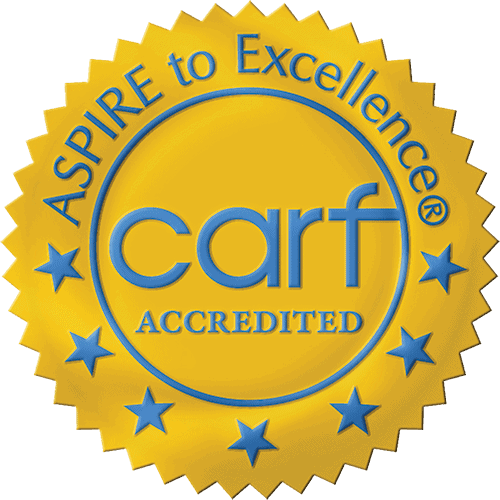Hallucinogens and PCP Drug Rehab in San Diego

If you or someone you love is struggling with a PCP addiction, it can be challenging to know where to start to look for help. That is why Present Moments in San Diego is committed to helping you with an innovative inpatient treatment approach.
For many people, getting the right kind of help at the right time means the difference between overcoming a PCP addiction or falling into a downward spiral of drug use and depression. Present Moments, in San Diego, presents an inpatient approach that is focused on withdrawal, counseling, and aftercare. By offering this treatment of care, Present Moment can help people who abuse PCP and other hallucinogens a “safe place” to overcome their reliance on these types of drugs.
Learning More About PCP
In the 1980s, PCP was known as “angel dust” or “killer weed.” Today, the prefix “new” is often added when discussing this drug. Many people mistakenly believe that PCP has been reintroduced into the market. The truth is that PCP use hasn’t declined since its heyday in the 1980s and 1990s.
In fact, it remains one of the most common illicit drugs used by high schoolers and young adults. According to SAMHSA surveys from 2017, about 0.6 percent of U.S. residents, 12 years or older, used PCP during a one-year period
This makes the drug about as popular as cocaine and amphetamines among this age group. Further research shows that in some regions with concentrated urban areas, usage may be even higher than the national averages suggest.
Moreover, people who abuse PCP, ketamine, and other hallucinogenic drugs may be at a higher risk of developing an addiction than users of other drugs. The effects are intense and often frightening for the user. They can also be long lasting and lead to negative consequences - consequences that the user may not notice immediately.
After going through a supervised and medically-managed detoxification protocol at Present Moments, patients continue the recovery process through an outpatient or inpatient treatment program. These programs feature counseling services and cognitive therapy. Residential treatment offers a home-type environment, which allows patients to recover in safe and relaxing surroundings.
What is PCP?
PCP (phencyclidine) is a synthetic dissociative drug originally created as an anesthetic. Its potential for misuse and abuse, however, quickly became apparent, and it was removed from medical use in 1965.
Since then, it has been used as a recreational drug for its hallucinogenic, euphoric, and deliriant properties. PCP is a white powder that dissolves in water, alcohol, and other solvents. It was originally used as an injectable medication, but it is now often sold as “crumbs (PCP and crack) that can be smoked, snorted, or mixed into a liquid and then injected.
The drug is therefore available in colored powders, as a tablet, or in capsules. It is known for its bitter chemical taste. Some users sprinkle the drug on marijuana or tobacco and smoke it. That is why it is also known as killer weed, or in some cases as supergrass.
Effects of PCP
PCP users report various effects of the drug, including feelings of euphoria, disassociation, and hallucinations. Many also report increased energy, difficulty sleeping, and feelings of paranoia, aggression, and sometimes violence.
The specific effects of PCP depend on how much a user consumes, how often they use the drug, and their mental and physical health. Some users mistakenly believe that the drug decreases anxiety and lifts the mood, which is how it got its name “angel dust.” In fact, PCP is a hallucinogen that disrupts the way our brain processes information. It is also a deliriant drug that causes users to feel detached from their environment.
Short-Term and Long-Term Effects PCP Use
The short-term effects of PCP are typically felt within 30 to 45 minutes of ingestion and last for 4 to 6 hours after use. The effects of long-term PCP use can include anxiety, paranoia, memory loss, depression, weight loss, and a weakened immune system.
Interestingly, there are also long-term physical effects of PCP use, including rapid facial muscle spasms, eye twitches, and an unbalanced gait. PCP users can also develop joint pains, muscle aches, and tooth decay from grinding their teeth while they sleep - another common PCP side effect.
Help for PCP and Hallucinogen Abuse at Present Moments in San Diego
Because PCP is a relatively new drug in the United States, there are few resources for treatment. Many drug treatment facilities therefore don’t offer PCP treatment, and few experts have experience with the drug.
Again, you can find the help you need through Present Moments in San Diego. We understand the needs of people struggling with an addiction to PCP or other hallucinogenic drugs.
Inpatient treatment at Present Moments in San Diego includes supportive medical intervention and care for withdrawal as well as psychosocial services, including cognitive behavioral therapy (CBT) and group therapy. Aftercare planning is included as well. This ensures that patients receive the long-term support they need to avoid a relapse.
Social support, including 12-step program assistance, can help patients at Present Moments in San Diego stay on track.
Going Through Withdrawal at Present Moments in San Diego
It’s encouraging that you can go through withdrawal and receive the medical assistance and monitoring you need at Present Moments in San Diego. That’s because we are committed to a successful intervention during withdrawal. We are also committed to making the process for the user as comfortable as possible.
You cannot go through withdrawal alone. It takes the dedication of medical staff members to continually oversee your care so you realize a successful rehab.
An addiction to PCP or other hallucinogens can easily lead to psychological dependence, compulsive drug use, and cravings. At Present Moments in San Diego, we continually monitor our patients to ensure they do not relapse, as cravings for PCP may continue, even when the user has stopped using the substance and has been off it for many months.
Short-Term Withdrawal Symptoms
Short-term symptoms of withdrawal associated with PCP are usually experienced 8 hours after stopping the drug. These symptoms include:
- Hallucinations
- Fear
- Anxiety
- Agitation
- Irritability
- Restlessness
- Muscle tremors and twitching
- Breakdown of the muscles
- Hyperactive eye movements
- Diarrhea
- Seizures
- Increased body temperature
- Acidosis
Long-Term Effects
Long term effects from withdrawal may last several months to a year after stopping, and are based on the period and level of use. These symptoms may include the following:
- Impaired thinking
- Thoughts of suicide
- Depression
- Weight loss
- Memory loss
- Impairment of speech
- Mood disorders
- Problems with sleep
Call Present Moments in San Diego for Inpatient Treatment For PCP or Others Substances
Going through drug rehab for PCP and the abuse of similar hallucinogens is not something you can ignore. The sooner you get treatment, the better you will feel about your future and how you feel physically and psychologically.
That is why, at Present Moments, in San Diego, we stress an aftercare treatment plan to keep our patients following a course that is both successful and life-changing for them.
Give us a call today and begin your rehab journey now.




